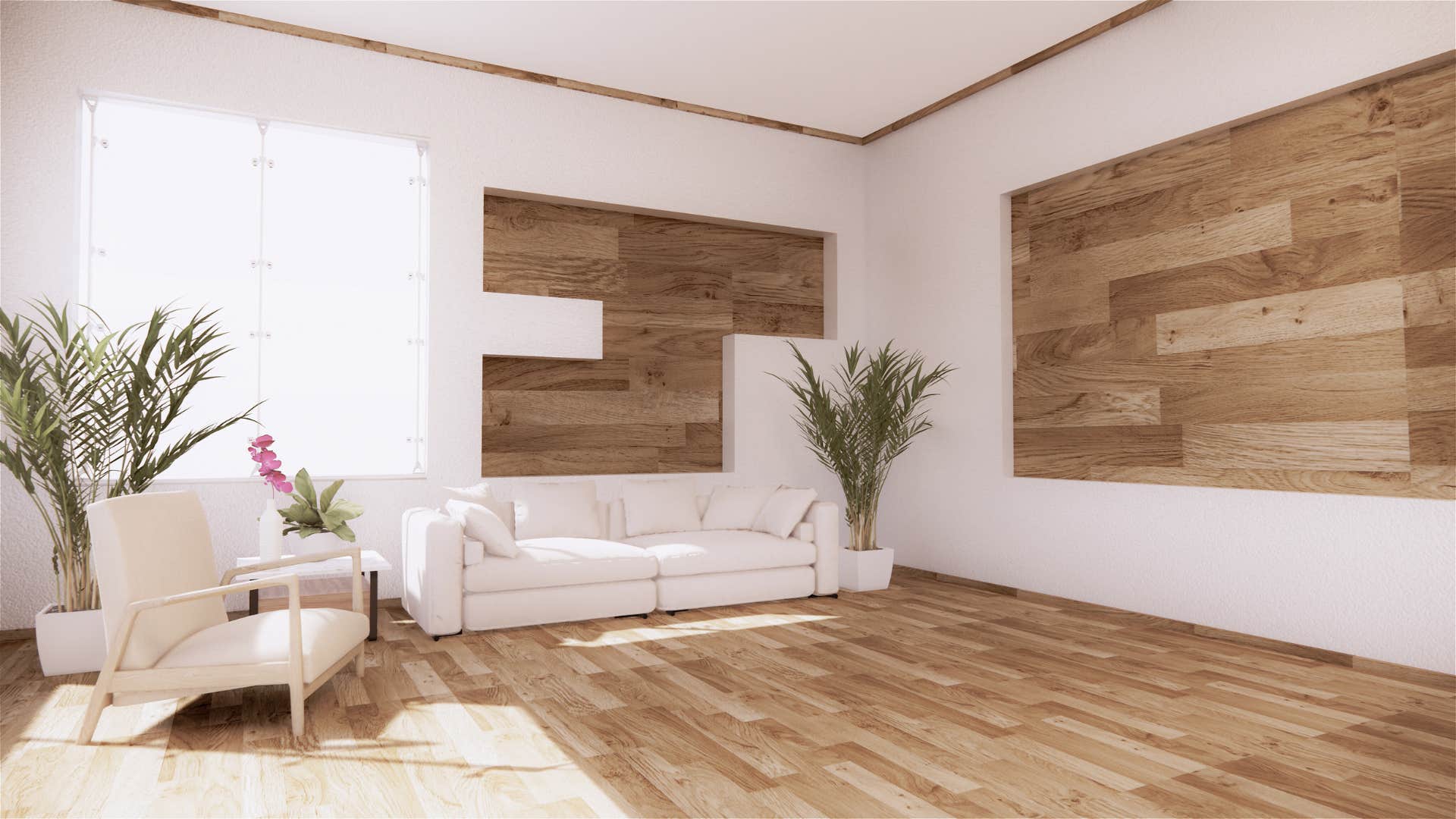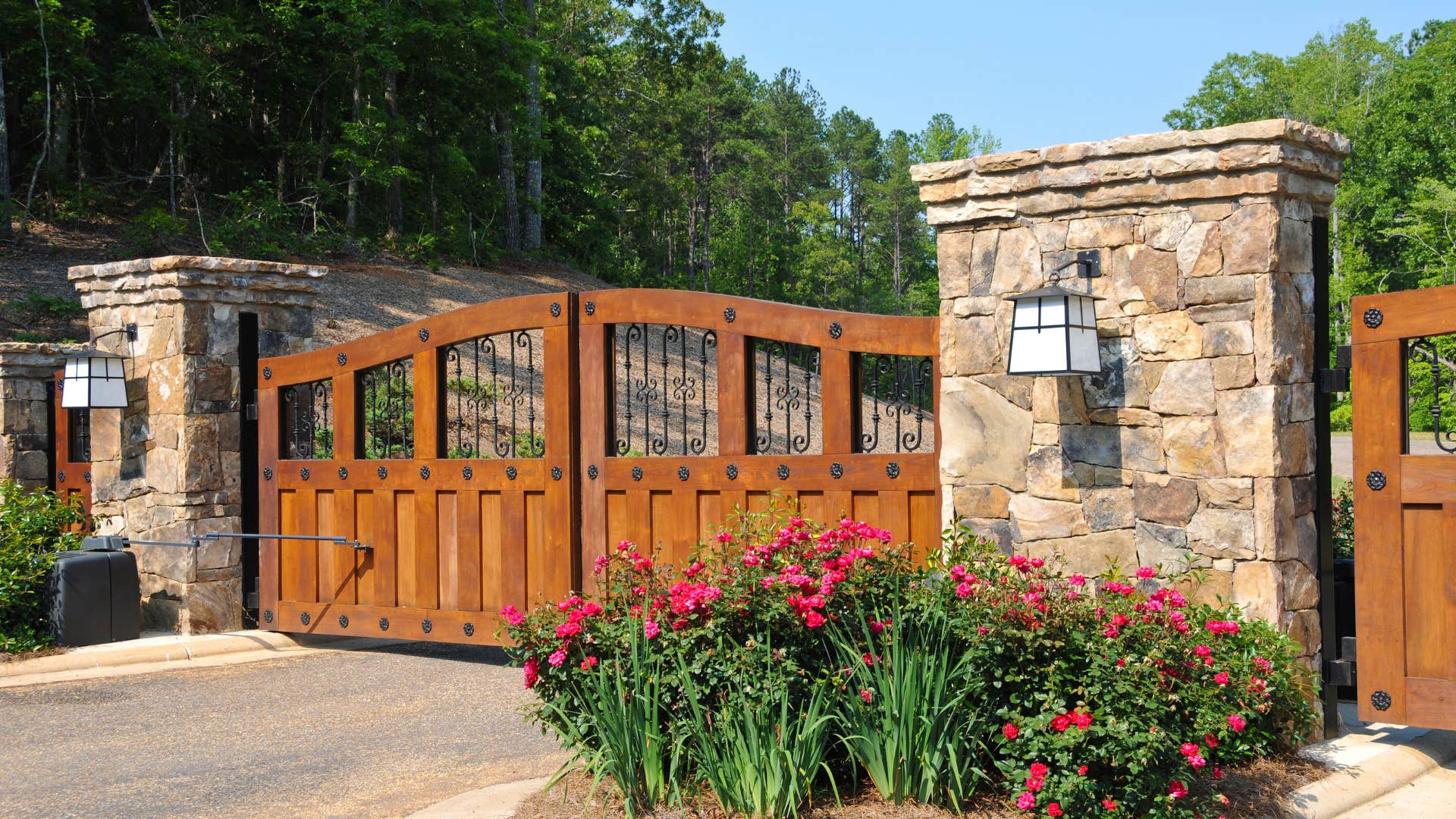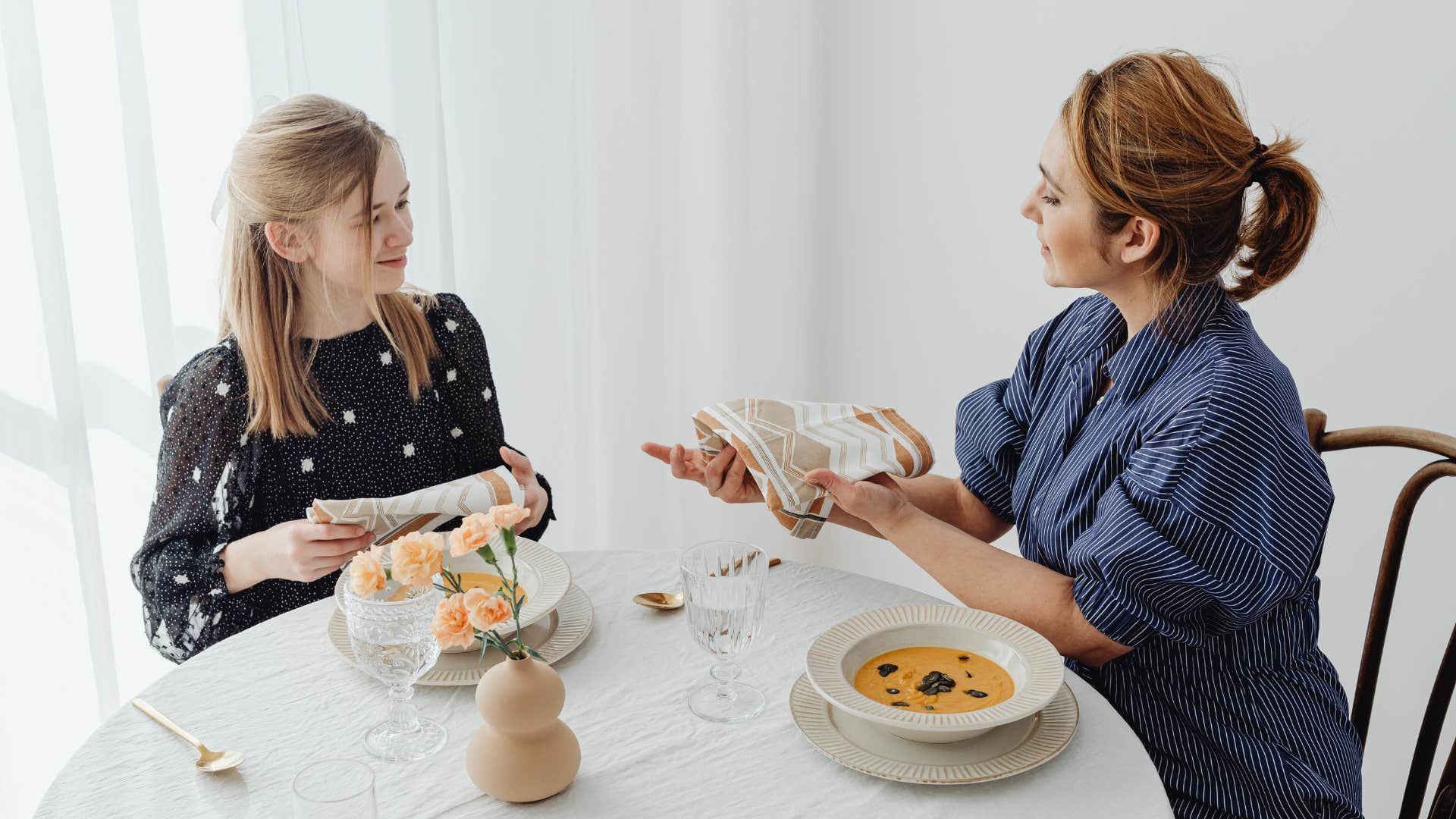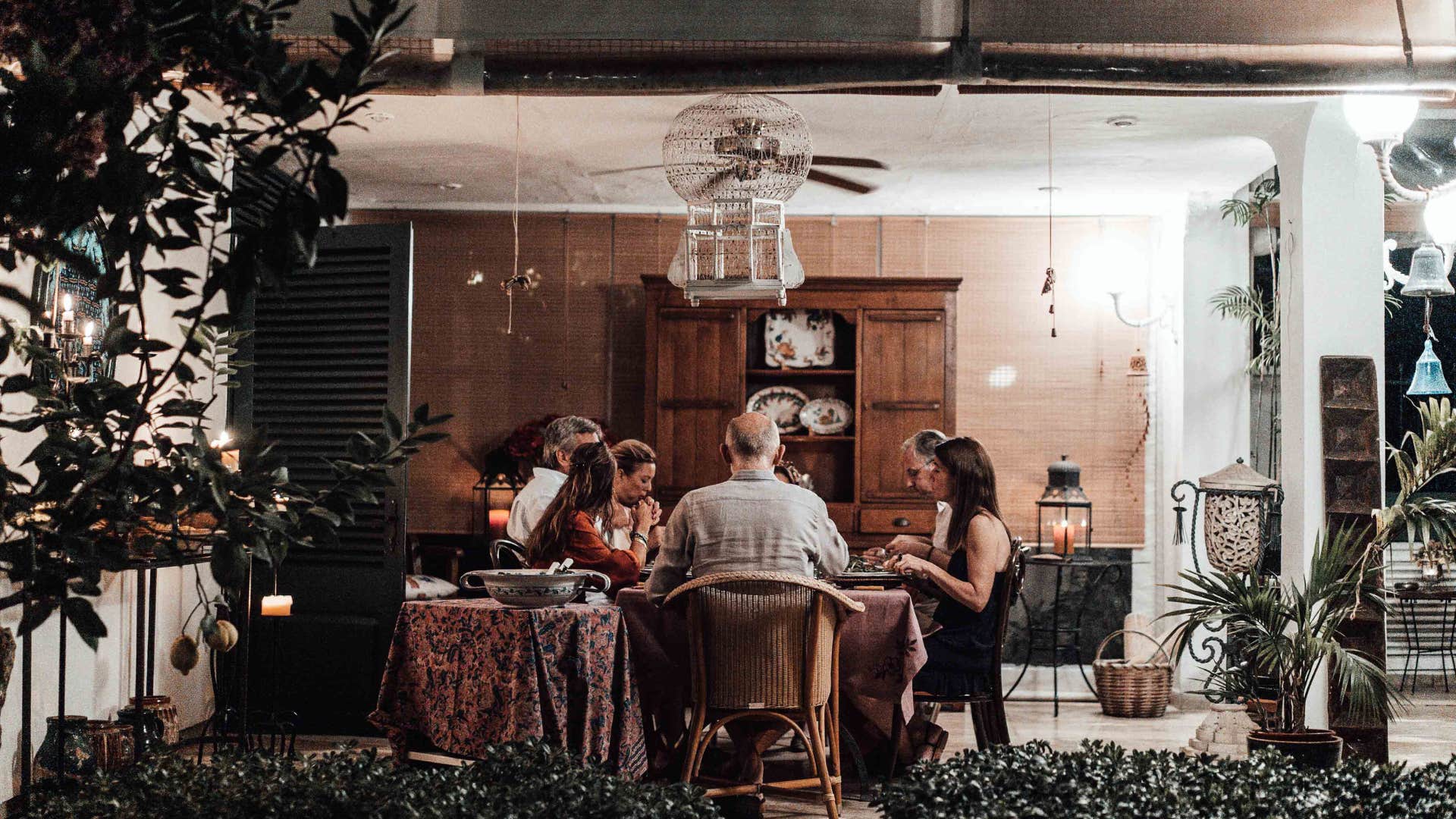11 Habits That Are Normal In Upper-Class Homes But Make Middle-Class People Uncomfortable
For high society, these things are totally normal, but to average people, these habits a very strange.
 My Agency / Shutterstock
My Agency / Shutterstock It's hard to determine a person's status based on their appearance alone, as not all wealth is flashy. Some of the most telling habits of upper-class people have nothing to do with showing off. They are ways of living, thinking, and speaking that feel foreign to middle-class people. The average person might find these behaviors weird, rude, or uncomfortable, but they are the norm in upper-class homes.
When a middle-class person visits the residence of someone who is upper-class, it can feel like another world. It's not just the opulence that is different, but the unspoken rules, social codes, and lifestyle choices that reveal how differently the two classes live. When upper-class people engage in these habits, it can leave the middle class feeling out of place.
Here are 11 habits that are normal in upper-class homes but make middle-class people feel uncomfortable
1. Children being seen and not heard
 dml5050 from Getty Images via Canva
dml5050 from Getty Images via Canva
Upper-class households often have an unspoken expectation that children are quiet, well-mannered, and out of sight when adults get together. They might even dine separately and spend the majority of their time being seen and not heard. Rich caregivers have the luxury of paying others to lift some of the parenting load, something completely out of reach and odd for many middle-class families.
Middle-class visitors who notice this family dynamic are used to a more relaxed, casual, and inclusive family environment, so this setup may feel rigid, and they may sense the emotional distance between the kids and parents. This difference in how the adults interact with their children is especially noticeable if a person is used to kids running around and adding their two cents to conversations.
2. Letting staff handle everything
 Industrial Photograph via Canva
Industrial Photograph via Canva
Growing up in a middle-class home, hosting meant setting everything up perfectly for our guests and cleaning up after them when they left. My mom would spend the entire day creating beautiful floral arrangements and cooking for everyone. For the upper echelon of society, these tasks are undoubtedly handled by paid staff.
In upper-class households, staff may manage all aspects of daily life. Whether it is cleaning, setting the table, or greeting guests, the wealthy never bother with day-to-day tasks because they would rather spend their time on things they value more. While this is very normal for them, middle-class people can feel awkward being waited on hand and foot.
3. Understated decor that costs a fortune
 Navamin studio via Canva
Navamin studio via Canva
In a middle-class home, you might find recognizable brand names on their home decor items. It's all about eye-catching displays of vibrant art., but upper-class people tend to lean more toward "quiet luxury" that doesn't look like much but costs an arm and a leg. Without knowing where the high-quality decor came from, it just feels expensive.
This minimalist style, consisting of antique and custom pieces, can be intimidating for middle-class people. It feels risky walking about priceless objects that appear to be run-of-the-mill. Everything seems as if it should be handled with care, and you know for a fact that if you break it, you certainly cannot buy it.
4. Not talking about money
 Prostock-studio via Canva
Prostock-studio via Canva
The funny thing about people with money is that they never talk about money. In a middle-class home, you might discuss income, expenses, debt, or financial success openly, but for the upper-class, talking about those things is in very poor taste. Social etiquette, security concerns, and a different mindset about money are the things that give them pause when the topic of wealth comes up.
The upper class doesn't have the same stresses about money that the middle class does. So, while the latter might feel the need to discuss it regularly, the rich let their money grow unmonitored. They also want to maintain privacy and avoid judgment and resentment from others. Telling people about your financial abundance is like sending out an open invitation to ask you for money.
5. Being late to everything
 SrdjanPav from Getty Images Signature via Canva
SrdjanPav from Getty Images Signature via Canva
In upper-class circles, it is common to be fashionably late. As a matter of fact, it's expected. Anybody who is somebody makes a grand entrance to the delight of the other attendees. If you are there early enough to help staff set up, you are definitely a nobody. Time is a gray area and it's common knowledge that no one will be there on time.
For middle-class people who prioritize timeliness and typically interact with other people of the same social status, this is especially uncomfortable and can even feel disrespectful. They show up at a wealthy friend's house on time and find that they are the first to arrive. The host isn't even there yet, and that's super awkward.
6. Casual name-dropping
 Image Source from Photo Images via Canva
Image Source from Photo Images via Canva
In upper-class households, talking about well-known public figures in a familiar way is par for the course. Mentioning celebrities, politicians, or historic institutions can happen in the course of a casual conversation. You might hear someone refer to President Obama by his first name as if they have a close, intimate connection with him.
While name-dropping in middle-class homes might seem pretentious, it gets very uncomfortable when the average person hears rich folks talk about high-power people like they are just the next-door neighbor. It's part of the social landscape in elite circles, so it's not unusual for them to brush shoulders with the who's who of the world.
7. Unapologetic privacy
 EyeMark from Getty Images Pro via Canva
EyeMark from Getty Images Pro via Canva
Don't be offended if you visit the home of an upper-class family and your questions are met with a brick wall of privacy. They have conditioned themselves to keep confidence, even with guests. They prioritize privacy and discretion because they want to minimize risk, keep unwanted attention away, and simply feel normal.
Rich people carry a lot of insecurity about how they are perceived and what comes with that. But middle-class people don't know what it's like to have people around you with their hands out all the time, or to have people plotting on how they can get a piece of your pie. To them, the extra security measures can seem extreme, but they are very necessary.
8. Multi-course meals with formal etiquette
 Nicole Michalou from Pexels via Canva
Nicole Michalou from Pexels via Canva
I remember going to an event where the stadium that the Seahawks played in was converted to a fancy restaurant, and high-end cooks around Seattle were invited to host every night. The five-course meal consisted of meticulously crafted, ridiculously small servings of delicious food. I laughed as each little plate came to the table, one after the other, but I left fulfilled.
In upper-class homes, meals may include several courses, served at particular times, and specific utensils. If you, like many of us in the middle class, are unfamiliar with fine dining etiquette, you might find yourself uncomfortable and confused. It can be a very nerve-wracking experience to have to second-guess which fork to use while eating.
9. Emotionless politeness
 Kaboompics from Pexels via Canva
Kaboompics from Pexels via Canva
If you find yourself in an upper-class home, you will likely find that everyone's manners a polite, but don't really carry much emotion. They have been raised to adhere to social norms that are valued in wealthy circles, so many times, they are on autopilot and often not intentional with their politeness. It's like a script that they have been programmed to follow.
In middle-class families, there is more flexibility and autonomy about how you treat people. Every relationship is different, so you might have the freedom to treat one person one way and another completely differently. Because their interaction is authentic and individual, it's warmer and emotional, a stark difference from the perceived formality and coldness in upper-class homes.
10. Intellectual small talk
 furkanfdemir from Pexels via Canva
furkanfdemir from Pexels via Canva
In middle-class circles, you may be able to catch up on the latest gossip, be brought up to speed on all things pop culture, or engage in mindless banter, but those in the upper class have bigger fish to fry. Their conversations might revolve around literature, arts, politics, philanthropy, or entrepreneurship... things that they see as valuable.
These topics can be deep and meaningful or create a back-and-forth that might go over the average person's head. For someone who is not used to talking about these things over cocktails, they might feel undue pressure and as if they are taking a test instead of socializing.
11. Scheduled fun
 studioroman via Canva
studioroman via Canva
In upper-class homes, even the fun is scheduled. Relaxation is a planned event, rarely done spontaneously. Social calendars are managed with precision, and jumping up to go hang out at the spur of the moment is almost unheard of. Life is predictable because these people know exactly where they are supposed to be at every minute of the day.
Middle-class people might find this stifling or too formal. They don't really understand why every event, even the most casual, has to be planned to a tee. In their eyes, it's uncomfortable and takes the fun out of life. They say, "More money, more problems," but upper-class people mitigate the issues by making sure they are properly prepared.
NyRee Ausler is a writer from Seattle, Washington, and the author of seven books. She focuses on lifestyle and human interest stories that deliver informative and actionable guidance on interpersonal relationships, enlightenment, and self-discovery.

